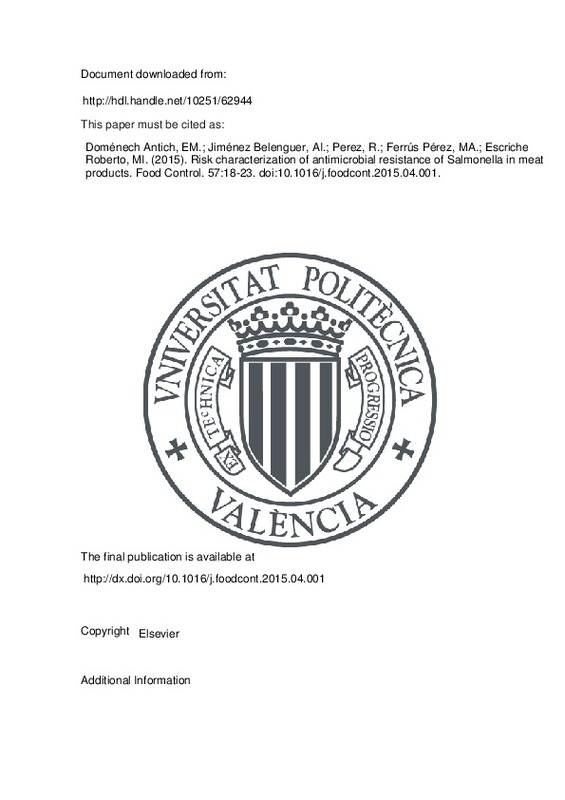JavaScript is disabled for your browser. Some features of this site may not work without it.
Buscar en RiuNet
Listar
Mi cuenta
Estadísticas
Ayuda RiuNet
Admin. UPV
Risk characterization of antimicrobial resistance of Salmonella in meat products
Mostrar el registro completo del ítem
Doménech Antich, EM.; Jiménez Belenguer, AI.; Perez, R.; Ferrús Pérez, MA.; Escriche Roberto, MI. (2015). Risk characterization of antimicrobial resistance of Salmonella in meat products. Food Control. 57:18-23. doi:10.1016/j.foodcont.2015.04.001
Por favor, use este identificador para citar o enlazar este ítem: http://hdl.handle.net/10251/62944
Ficheros en el ítem
Metadatos del ítem
| Título: | Risk characterization of antimicrobial resistance of Salmonella in meat products | |
| Autor: | Perez, Rosa | |
| Entidad UPV: |
|
|
| Fecha difusión: |
|
|
| Resumen: |
[EN] Antimicrobial resistance is considered to be a major public health concern in the framework of Horizon
2020. The risk to human health from foodborne antimicrobial resistant microorganisms can be determined
and ...[+]
|
|
| Palabras clave: |
|
|
| Derechos de uso: | Reserva de todos los derechos | |
| Fuente: |
|
|
| DOI: |
|
|
| Editorial: |
|
|
| Versión del editor: | http://dx.doi.org/10.1016/j.foodcont.2015.04.001 | |
| Tipo: |
|







![[Cerrado]](/themes/UPV/images/candado.png)


